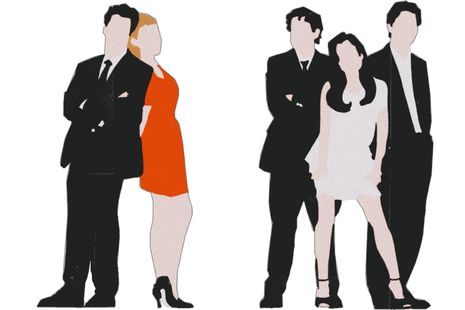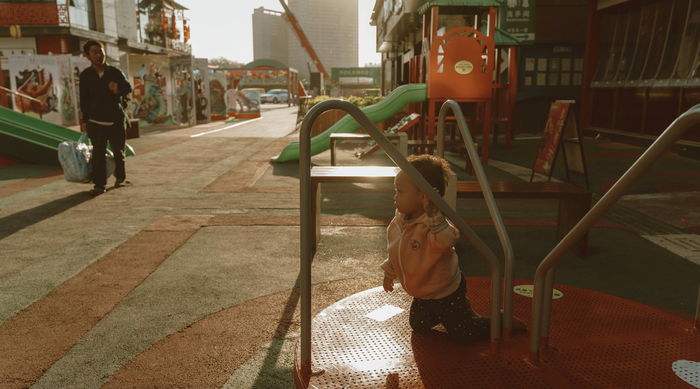Kicking and Screaming‘s graduation anxiety, 30 years on
Ethan Daws reflects on Noah Baumbach’s poignant campus film ahead of his newest release

Graduation. It’s coming. For all of us. Something so dreadful it doesn’t even bear thinking about, at least not during Michaelmas. So far beyond the horizon of late nights in the library, and thousands of words of dissertations – years away for the luckiest among you. When it eventually happens, what will become of those of us left without a comfortable grad job? What cruel fate is awaiting us once the bliss of our student days becomes a distant memory?
These questions are as pertinent today as they were 30 years ago, when Noah Baumbach, whose latest feature Jay Kelly opens later this month, released his debut film, Kicking and Screaming (1995). It follows a group of friends clinging on to their college days as they struggle to move on with their lives in the year after graduation. They live in a house in their old college town, and spend all their time at the same bar, in the same clubs, and on the same campus. For anyone seeking a comprehensive guide of what not to do after university, or a glimpse into what our parents’ student days might have looked like, this is essential viewing.
“For anyone seeking a comprehensive guide of what not to do after university … this is essential viewing”
Grover (Josh Hamilton), a talented aspiring novelist who hasn’t written anything since graduating, spends the year pining after his ex-girlfriend Jane (Olivia d’Abo) who has left for a year abroad, while refusing to answer any of her messages. Max (Chris Eigeman) exemplifies the group’s debilitating pessimism with frequent one liners that are equally witty and despairing: “What I used to be able to pass off as just another bad summer could now potentially turn into a bad life”. Otis (Carlos Jacott), who was set to depart for graduate school in Milwaukee until bailing out at the airport, is plagued by a social awkwardness so debilitating that he would rather swallow food in his beer than ask for a new one. Skippy (Jason Wiles), meanwhile, lives vicariously through his still-at-college girlfriend Miami (Parker Posey), who cheats on him with Max.
Despite how pathetic these characters are, there’s something enviable, even aspirational, in the 90s slacker lifestyle depicted. Sure, they all dress effortlessly well – even Otis’ pyjama top with a tie and blazer would draw admiring looks on Sidgwick Site – but the appeal of Kicking and Screaming’s world to the modern viewer goes beyond its visual style. In one moment, the characters gather round the television for several seconds to see whether a grease stain in a detergent advert will be successfully removed – would our generation have the attention span to watch this without 2x speed? Friends test each other on trivia, and debate the correct answers rather than turning to Google’s AI summary. The jukebox at the bar, the video rental store; so many of the ways that time is passed in the film would be made impossible by modern technology and algorithms. In an age where everything seems so readily accessible, watching these tragic characters come up with creative and intentional ways to fill their days is actually somewhat inspiring. Do we yearn for the way people used to be bored?
“Do we yearn for the way people used to be bored?”
Kicking and Screaming is a film of conversations, usually between the same friends, and usually for no purpose other than to pass the time. It’s typical of a style associated with the 90s, one epitomised by Seinfeld, “the show about nothing”, where coffee shops and dive bars are the settings for witty dialogue and endless riffing. The film revels in awareness of its own futility; Grover’s writing in class is criticised by Jane for depicting characters who “spend all their time discussing the least important things.” This self-effacing nod from Baumbach is made even less subtle by the character he plays, Danny, whose chief contribution is posing conundrums like “Would you rather fuck a cow or lose your mother?”
There’s a naivety in the film’s aimlessness that is distinct to the culture of the 90s. A generation of men too young to remember the Vietnam War, living in pre 9/11 America, muse that they “wish [they] were just going off to war” rather than have to endure the horrors of a comfortable transition to adulthood. Afforded nearly every privilege and opportunity, they squander them: Grover is offered a flat in New York and an internship at The New Yorker by his father, but won’t even return his message. They seem to be somewhat aware of just how good they have it, but this only makes their wasteful inactivity all the more depressing.
Eventually, something has to give, as this self-induced paralysis cannot go on forever. As Grover puts it: “Despite my intense efforts to do nothing, things happen anyway.” Back at the airport a year later, Otis is finally heading to graduate school and Max has applied for a job at the university and is looking to move in with his girlfriend. Prompted by his friends’ progress, in a speech worthy of the best 90s rom-coms, Grover begs the airport receptionist to get him on the next flight to Prague to visit Jane. In this portal of new beginnings, they have defeated their self-destructive impotence and should inspire us all to do the same, not to waste our lives after graduation in the depths of self pity. When this moment of triumph is broken as Grover doesn’t have his passport, the receptionist’s reply is the mantra that will comfort us procrastinators at the worst of our post-uni inertia: “You can always go tomorrow”.
 News / Cambridge academics sign open letter criticising research funding changes22 February 2026
News / Cambridge academics sign open letter criticising research funding changes22 February 2026 News / University Council rescinds University Centre membership20 February 2026
News / University Council rescinds University Centre membership20 February 2026 News / Supporters protest potential vet school closure22 February 2026
News / Supporters protest potential vet school closure22 February 2026 News / Hundreds of Cambridge academics demand vote on fate of vet course20 February 2026
News / Hundreds of Cambridge academics demand vote on fate of vet course20 February 2026 Comment / A tongue-in-cheek petition for gowned exams at Cambridge 21 February 2026
Comment / A tongue-in-cheek petition for gowned exams at Cambridge 21 February 2026








